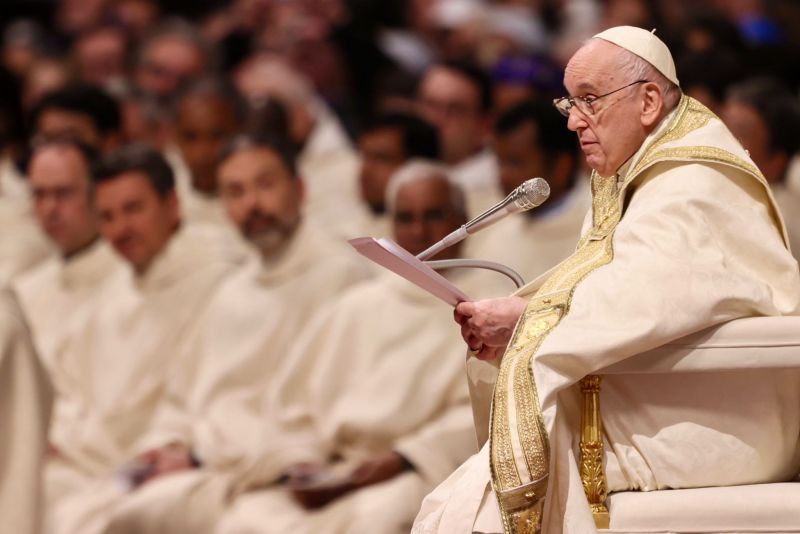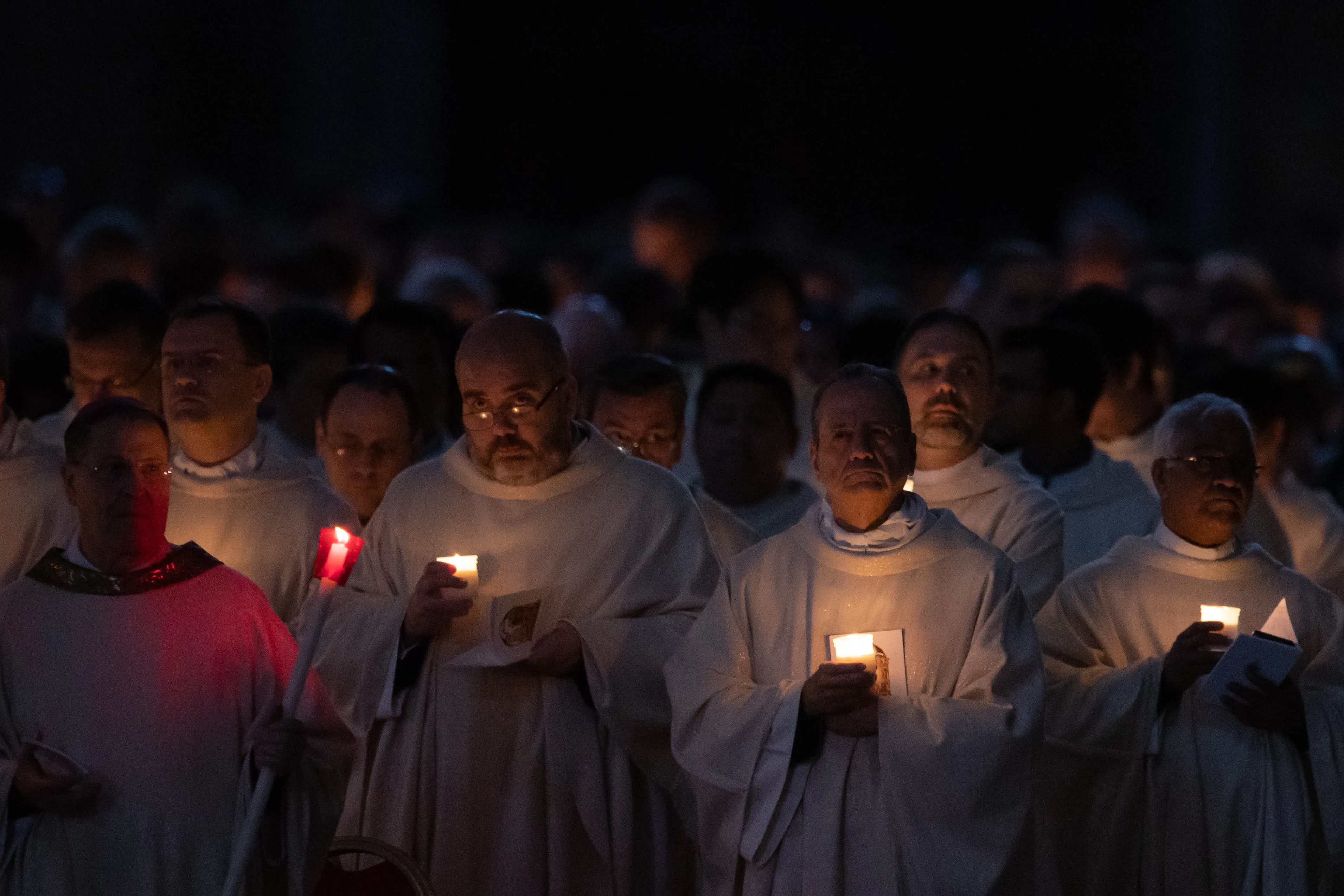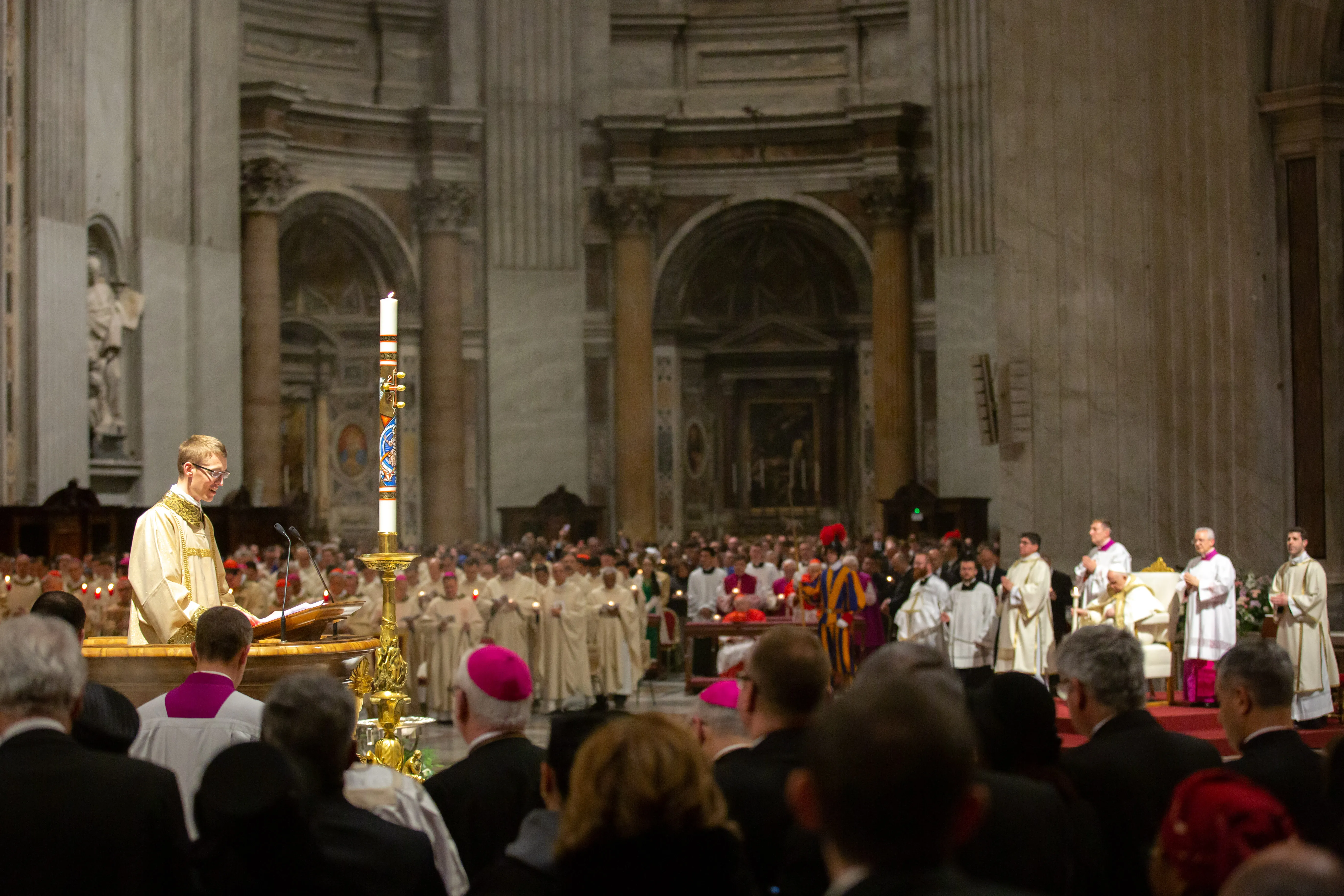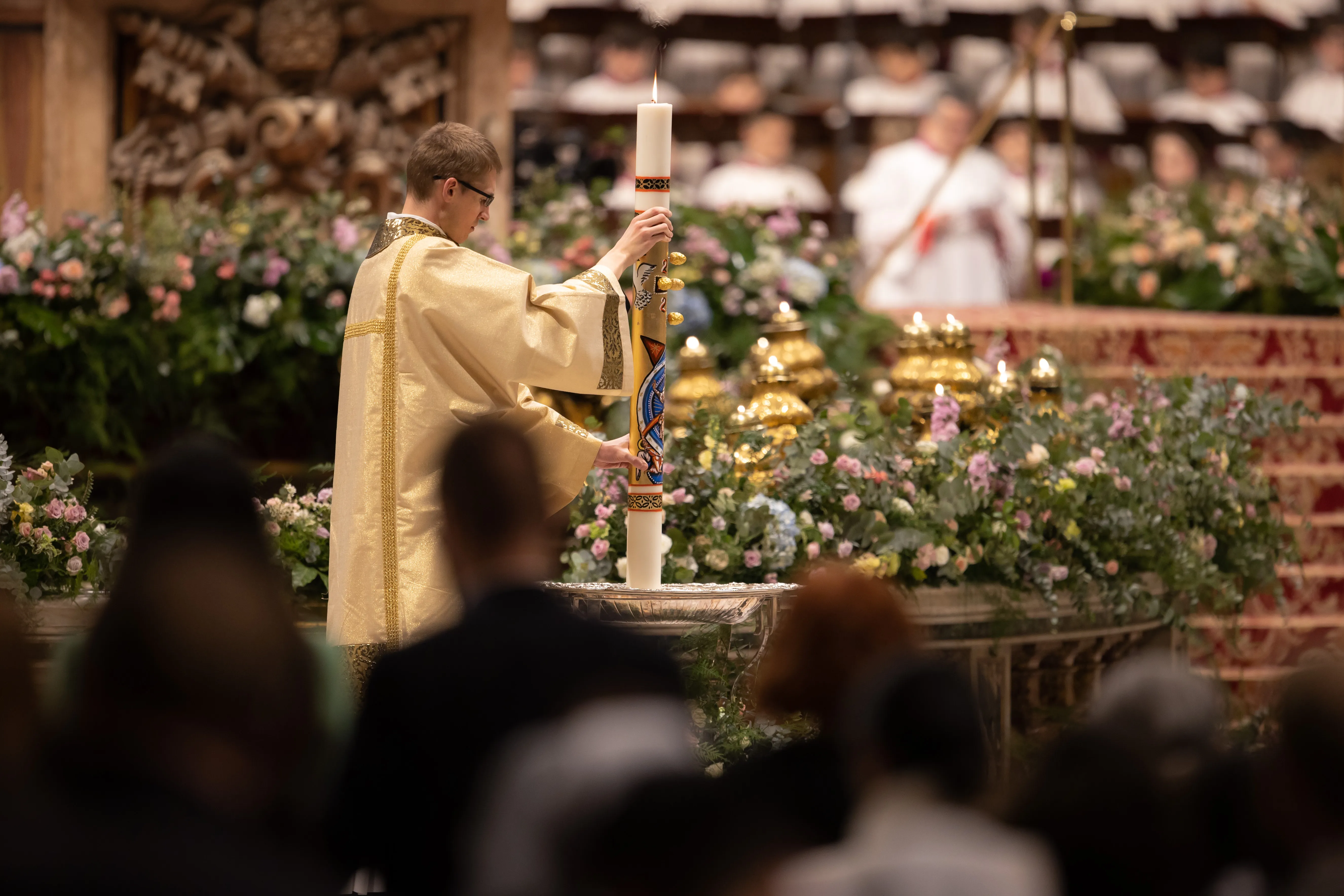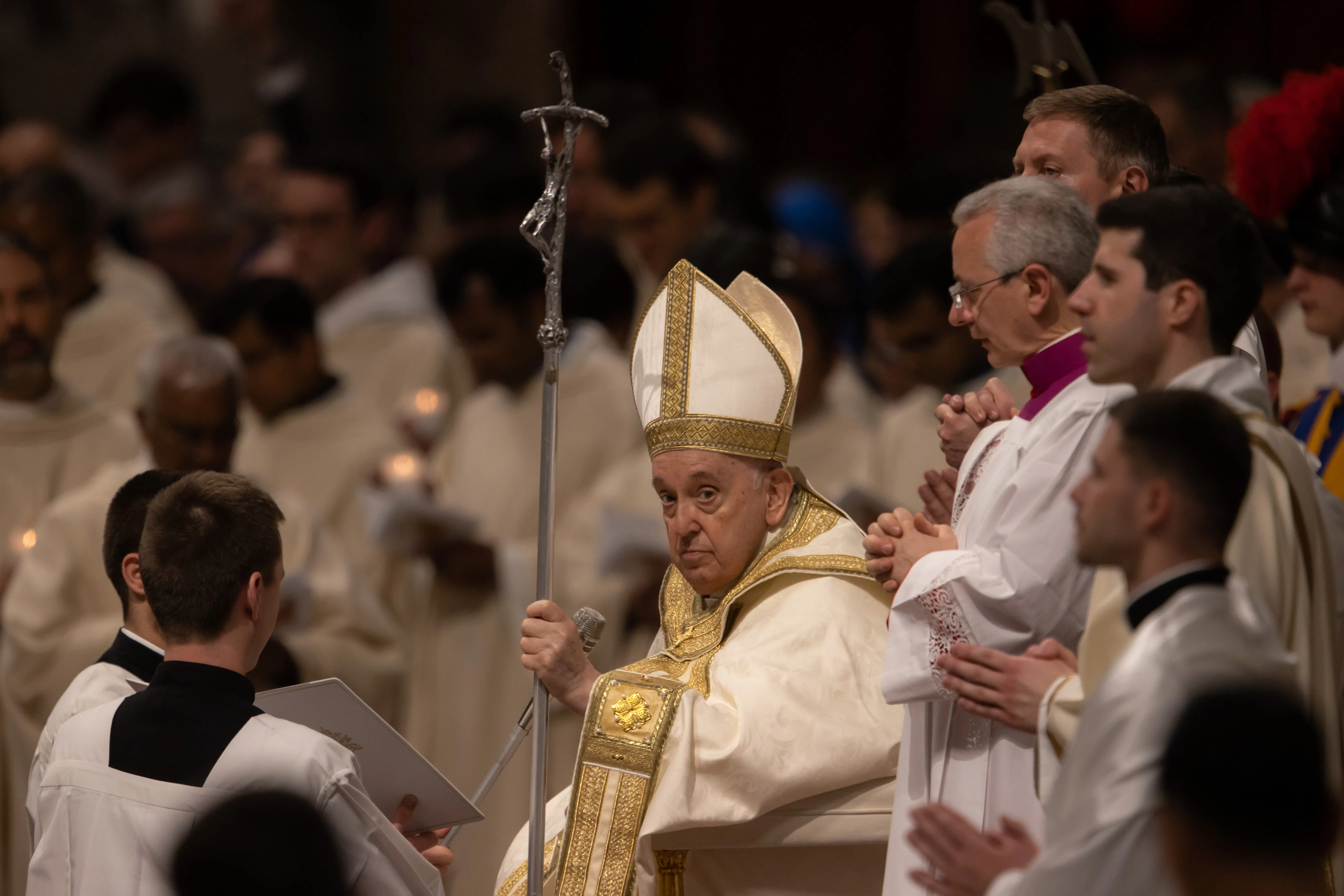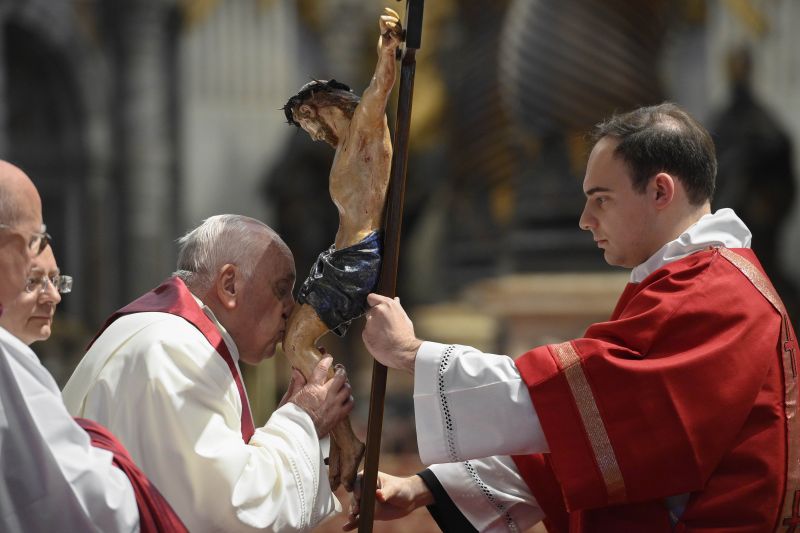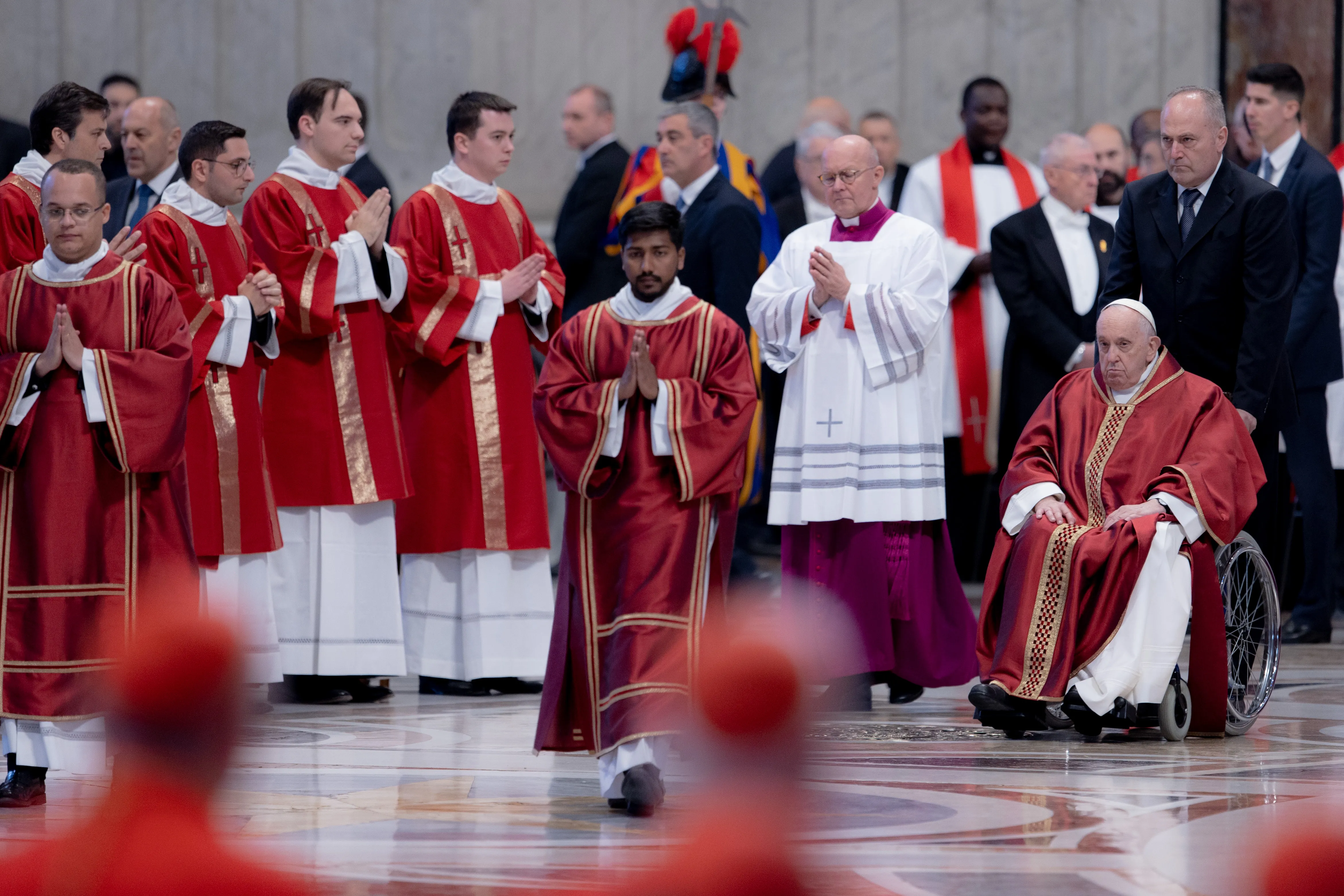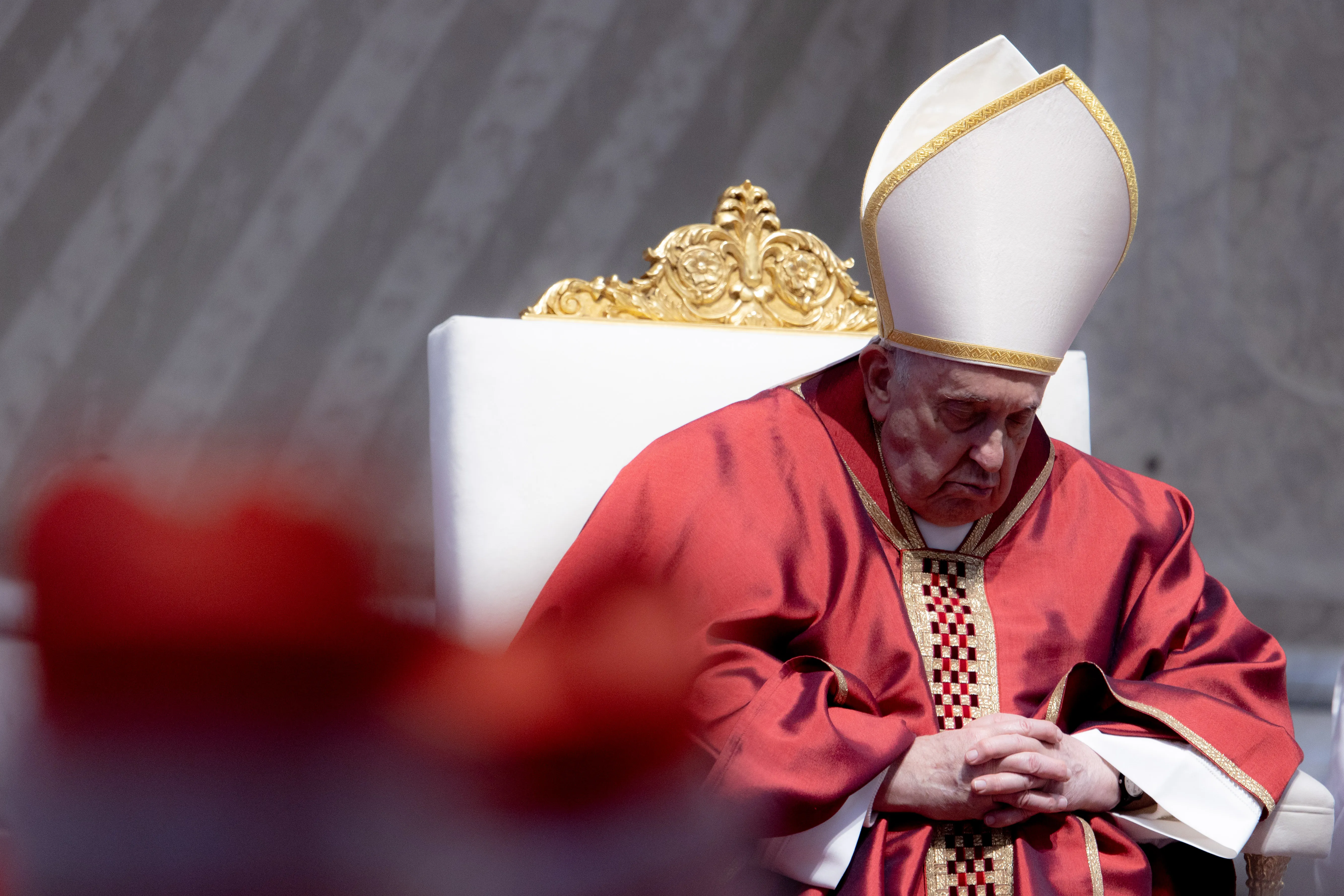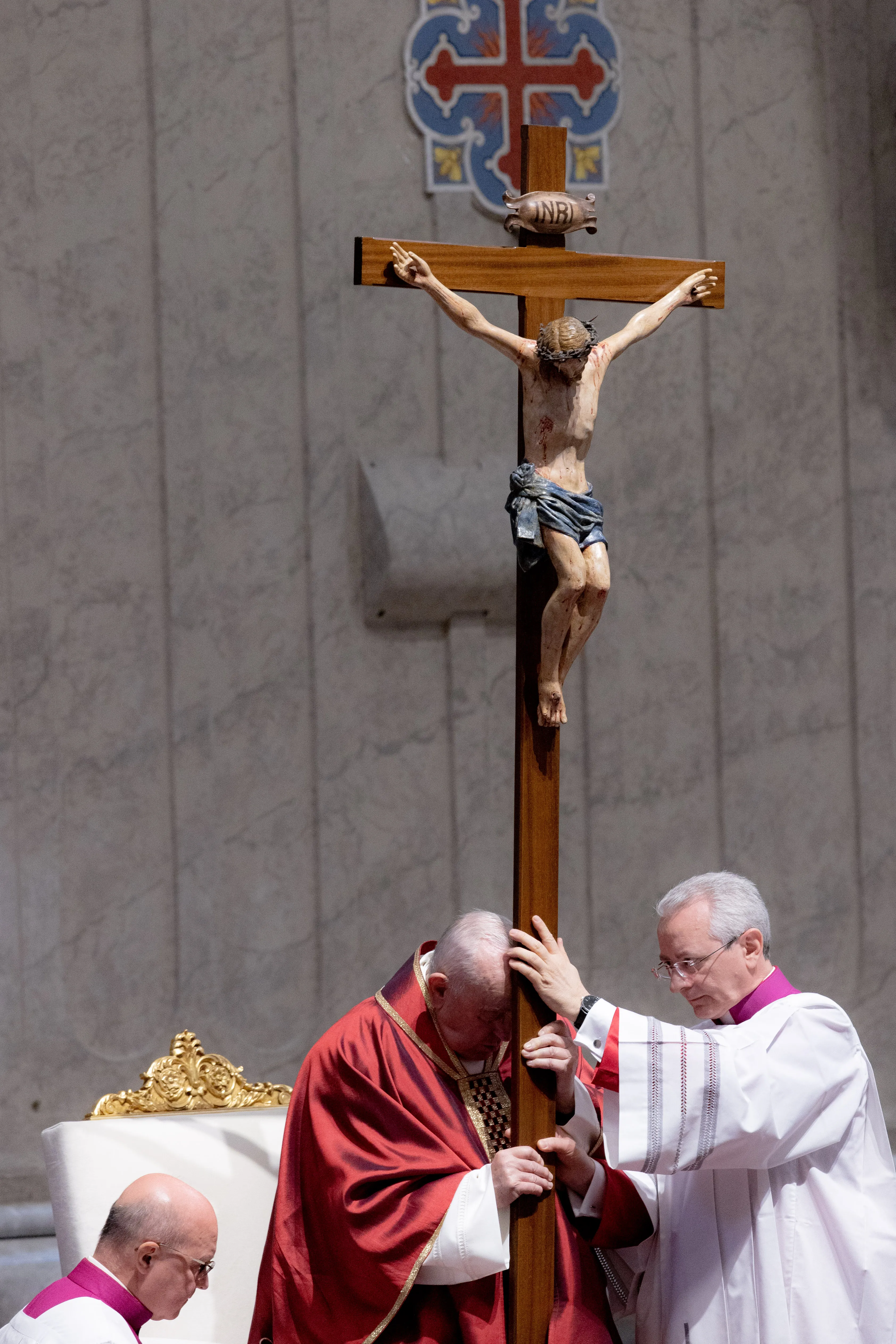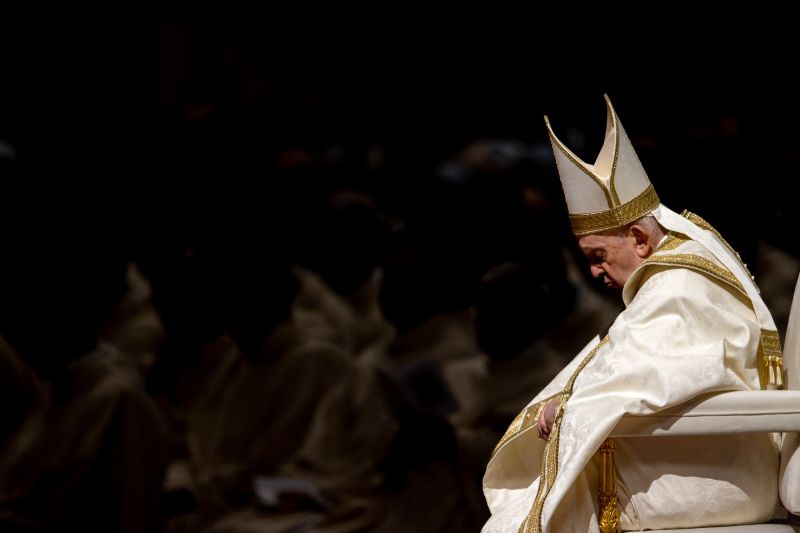 Pope Francis prays during the Easter Vigil Mass in St. Peter’s Basilica on April 8, 2023. / Daniel Ibanez/CNA
Pope Francis prays during the Easter Vigil Mass in St. Peter’s Basilica on April 8, 2023. / Daniel Ibanez/CNA
Vatican City, Apr 8, 2023 / 15:00 pm (CNA).
Here is the full text of Pope Francis’ Easter Vigil homily, delivered on April 8 in St. Peter’s Basilica.
The night is drawing to a close and the first light of dawn is appearing upon the horizon as the women set out toward Jesus’ tomb. They make their way forward, bewildered and dismayed, their hearts overwhelmed with grief at the death that took away their Beloved. Yet upon arriving and seeing the empty tomb, they turn around and retrace their steps. They leave the tomb behind and run to the disciples to proclaim a change of course: Jesus is risen and awaits them in Galilee. In their lives, those women experienced Easter as a Pasch, a passage. They pass from walking sorrowfully towards the tomb to running back with joy to the disciples to tell them not only that the Lord is risen, but also that they are to set out immediately to reach a destination, Galilee. There they will meet the Risen Lord; that is where the resurrection leads them. The rebirth of the disciples, the resurrection of their hearts, passes through Galilee. Let us enter into this journey of the disciples from the tomb to Galilee.
The Gospel tells us that the women went “to see the tomb” (Mt 28:1). They think that they will find Jesus in the place of death and that everything is over, forever. Sometimes we too may think that the joy of our encounter with Jesus is something belonging to the past, whereas the present consists mostly of sealed tombs: tombs of disappointment, bitterness, and distrust, of the dismay of thinking that “nothing more can be done”, “things will never change”, “better to live for today”, since “there is no certainty about tomorrow”. If we are prey to sorrow, burdened by sadness, laid low by sin, embittered by failure, or troubled by some problem, we also know the bitter taste of weariness and the absence of joy.
At times, we may simply feel weary about our daily routine, tired of taking risks in a cold, hard world where only the clever and the strong seem to get ahead. At other times, we may feel helpless and discouraged before the power of evil, the conflicts that tear relationships apart, the attitudes of calculation and indifference that seem to prevail in society, the cancer of corruption … the spread of injustice, the icy winds of war. Then too, we may have come face to face with death, because it robbed us of the presence of our loved ones or because we brushed up against it in illness or a serious setback. Then it is easy to yield to disillusionment, once the wellspring of hope has dried up. In these or similar situations … our paths come to a halt before a row of tombs, and we stand there, filled with sorrow and regret, alone and powerless, repeating the question, “Why?” … The women at Easter, however, do not stand frozen before the tomb; rather, the Gospel tells us, “They went away quickly from the tomb, fearful yet overjoyed … and ran to announce this to his disciples” (v. 8). They bring the news that will change life and history forever: Christ is risen! (v. 6). At the same time, they remember to convey the Lord’s summons to the disciples to go to Galilee, for there they will see him (cf. v. 7). Brothers and sisters, what does it mean to go to Galilee? Two things: on the one hand, to leave the enclosure of the Upper Room and go to the land of the Gentiles (cf. Mt 4:15), to come forth from hiding and to open themselves up to mission, to leave fear behind and to set out for the future. On the other hand–-and this is very good—to return to the origins, for it was precisely in Galilee that everything began. There the Lord had met and first called the disciples. So, to go to Galilee means to return to the grace of the beginnings, to regain the memory that regenerates hope, the “memory of the future” bestowed on us by the Risen One.
This, then, is what the Pasch of the Lord accomplishes: it motivates us to move forward, to leave behind our sense of defeat, to roll away the stone of the tombs in which we often imprison our hope, and to look with confidence to the future, for Christ is risen and has changed the direction of history. Yet, to do this, the Pasch of the Lord takes us back to the grace of our own past; it brings us back to Galilee, where our love story with Jesus began. Where was that first call? In other words, it asks us to relive that moment, that situation, that experience in which we met the Lord, experienced his love, and received a radiantly new way of seeing ourselves … the world around us, and the mystery of life itself. To rise again, to start anew, to take up the journey, we always need to return to Galilee, that is, to go back, not to an abstract or ideal Jesus, but to the living, concrete, and palpable memory of our first encounter with him. Yes, brothers and sisters, to go forward we need to go back, to remember; to have hope, we need to revive our memory. This is what we are asked to do: to remember and go forward! If you recover that first love, the wonder and joy of your encounter with God, you will keep advancing. So remember, and keep moving forward. Remember, and keep moving forward.
Remember your own Galilee and walk towards it, for it is the “place” where you came to know Jesus personally, where he stopped being just another personage from a distant past, but a living person: not some distant God but the God who is at your side, who more than anyone else knows you and loves you. Brother, sister, remember Galilee, your Galilee, and your call. Remember the Word of God who at a precise moment spoke directly to you. Remember that powerful experience of the Spirit; that great joy of forgiveness experienced after that one confession; that intense and unforgettable moment of prayer; that light that was kindled within you and changed your life; that encounter, that pilgrimage. … Each of us knows the place of his or her interior resurrection, that beginning and foundation, the place where things changed. We cannot leave this in the past; the Risen Lord invites us to return there to celebrate Easter. … Remember your Galilee. Remind yourself.
Today, relive that memory. Return to that first encounter. Think back on what it was like, and reconstruct the context, time, and place. Remember the emotions and sensations; see the colors and savor the taste of it. For, you know, it is when you forgot that first love when you failed to remember that first encounter, that the dust began to settle on your heart. That is when you experienced sorrow and, like the disciples, you saw the future as empty, like a tomb with a stone sealing off all hope. Yet today, brothers and sisters, the power of Easter summons you to roll away every stone of disappointment and mistrust. The Lord is an expert in rolling back the stones of sin and fear. He wants to illuminate your sacred memory, your most beautiful memory, and to make you relive your first encounter with him. Remember and keep moving forward. Return to him and rediscover the grace of God’s resurrection within you …
Dear brothers and sisters, let us follow Jesus to Galilee, encounter him, and worship him there, where he is waiting for each of us. Let us revive the beauty of that moment when we realized that he is alive and we made him the Lord of our lives. Let us return to Galilee. … Let each of us return to his or her own Galilee, to the place where we first encountered him. Let us rise to new life!
[…]




